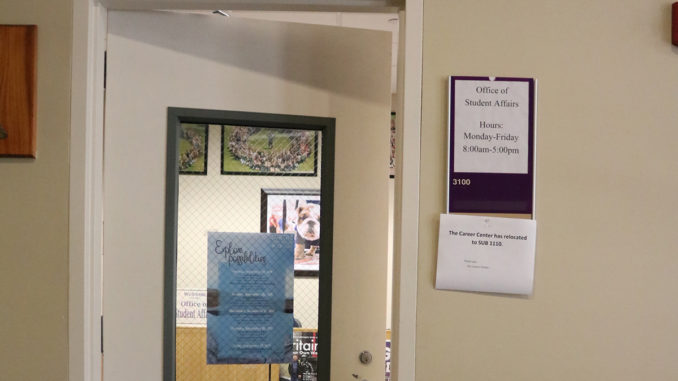
An email survey was sent to students last semester to gauge their interest in changes to Truman State University’s dry campus policy. Now, Janna Stoskopf, vice president for student affairs, is working on what recommendations she can make to the Board of Governors on changes to the alcohol policy.
This comes after Student Government passed a resolution in April 2019 asking administration to formally revisit the campus alcohol policy and after Young Americans for Liberty held events last semester raising awareness for the issue.
Stoskopf led a committee composed of seven students. Three Student Government representatives, three Residence Hall Association representatives and the president of YAL.
Stoskopf said the student representatives were integral for sharing anecdotal information and writing questions for the survey.
Stoskopf said the committee looked at a variety of things, such as the existing policy, what the Missouri Statute has to say about alcohol and what other colleges are doing in regard to alcohol on campus.
Public institutions are evenly spread on how to handle alcohol on campus, Stoskopf said, and there are three popular solutions among campuses. First, a completely dry campus. Second, where certain facilities or events are allowed for alcohol if they meet certain requirements. Third, where certain residence halls allow alcohol in rooms occupied by of legal drinking age.
Stoskopf said the only option completely off the table was the idea of an entirely wet campus where alcohol was allowed everywhere at any time.
“As a state agency … we can’t ignore the law,” Stoskopf said. “We can’t say, ‘It’s OK for underage students to drink,’ but as a higher ed administrator for 30 years, I have a pretty good understanding of what really goes on regardless of what the law says.”
Stoskopf said her goal is to be clear about what the law states while helping Truman students develop more low risk drinking habits.
The committee wanted to get feedback from a broader segment of campus, Stoskopf said, which is why the survey was important.
“We wanted [students] to be honest about what their beliefs are, why [they] made the decision to return to the residence halls … those kinds of things,” Stoskopf said. “We were concerned about if people would be reluctant to complete the survey in fear of it circling back and getting them in some sort of trouble.”
Stoskopf said that is why the survey often reinforced the fact that there is no way to backtrack someone’s answers to their identity.
Overall, Stoskopf said she was impressed by the number of responses the survey received.
“If we were to move forward from a dry campus to some other perspective on alcohol, that would require the Board to be in agreement with that notion,” Stoskopf said.
Naomi Mathew, a representative for YAL on the committee, said her goals were to work with the school to relax or end the dry campus rule at Truman.
“I think it is very possible [to change the dry campus rule],” Mathew said. “Especially considering the overwhelming majority of survey responses said they wanted the dry campus policy to change.”
Mathew said she is happy with how the process is going and is very proud of the work YAL members did to bring attention to the issue last semester.
“Regardless of what the final outcome is, whether we make a change or keep it the same, my hope is that students would understand that we took a real serious look at a variety of options and really tried to process this appropriately,” Stoskopf said.
The Board of Governors meeting will be held Feb. 8, where they will present the alcohol survey results and have a discussion on what the future of Truman’s dry campus policy is.
